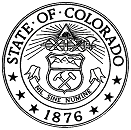![]() The information on this page is archived and provided for reference purposes only. It may be outdated or no longer maintained.
The information on this page is archived and provided for reference purposes only. It may be outdated or no longer maintained.
Attorney General Salazar and Secretary of State Davidson Provide Consumer Tips on Charitable Solicitations
Denver, December 19, 2002 — Attorney General Ken Salazar and Secretary of State Donetta Davidson today issued practical consumer information to consider when responding to charitable solicitations.
"There are many legitimate charities that rely upon generous contributions from the public. We all need to be confident that our donations will be used for the intended charitable purpose. Unfortunately, not every charitable solicitation will be legitimate. We are providing information to guide consumers in this area," said Salazar.
"To protect Colorado citizens from charitable fraud, the State registration number is essential--if the callers can't give you one, tell them to call back when they have one. The registration number will enable potential donors to review all the filings for a charity or a paid solicitor," said Davidson. "It will empower consumers and charities alike by helping consumers make better-informed decisions. We know that Coloradans are very generous when it comes to volunteering their time and donating their money to charities, and we want to do everything we can to prevent anyone from taking advantage of that generosity," said Davidson.
Recognizing the difficulty of distinguishing between real and phony charitable appeals, particularly among those that are not well recognized, Attorney General Salazar and Secretary of State Davidson offer the following tips:
4 Important tips for consumers
- If a solicitor calls you: Ask for their registration number AND the registration number of the charity they are representing. With certain exceptions, charitable organizations seeking donations from Colorado residents must register with the Colorado Secretary of State before they can engage in fundraising activities in Colorado. Professional fundraising consultants and paid charitable solicitors must also register with the Secretary of State before they can engage in any fundraising activities in Colorado, and have separate registration numbers.
- Ask every solicitor: "How much of my donation will actually go to the charitable organization? If you think the amount is too low, tell them "No thank you."
- Ask every solicitor and charity: "Is my contribution tax deductible? If this is important to you, ask the question. Charities must indicate their tax-exempt status in their registration statements. Tax exempt does not necessarily mean that contributions are tax deductible. Do not accept a federal employer ID number as evidence of an organization's tax-exempt status with the IRS; that information alone is meaningless to a potential donor.
- Check out the charity before you give, particularly if you are unfamiliar with it. Request written literature, including the organizations' own annual report. Colorado law requires all charitable organizations soliciting contributions in Colorado, with certain specific exceptions listed in the Charitable Solicitations Act, to submit an initial registration statement with the Secretary of State and an annual financial report. The Charitable Solicitations Act is in the Colorado Statutes at 6-16-101 through 113.
Registration statements and financial reports are available to the public online through the Secretary of State's Office at www.sos.state.co.us. Look under the "Licensing" link, then under "Search Charitable Database." The financial reports include yearly revenue and expense information for the charity.
General tips regarding charitable solicitations
- Make checks payable to the organization, never to an individual.
- Don’t be fooled by names that closely resemble other well-known organizations.
- Don't be swayed by strong emotional appeals -- take some time to examine the charity's claims and to consider alternatives.
- Don't be pressured to make an immediate decision -- while donations will help, it is not likely that two or three days will make a difference. Be suspicious if the caller offers to send a courier to pick up your contribution or requests an immediate contribution. If you're not sure, ask them to send informational material and a contribution envelope.
- Ask for and get the name and address of both the paid fundraiser and the charity they represent.
- Numerous charity organizations maintain legitimate web sites through which donations can be made. However, e-mail solicitations are rarely used by these legitimate organizations to solicit donations. If you receive an e-mail solicitation directing you to a private web site which requests your credit card number, be wary because it is very possible this is a scam.
If you believe a fraudulent fundraiser has contacted you, please call the Attorney General's Office at 1-800-222-4444, your local law enforcement office, or the Colorado Secretary of State's Office at 303-894-2200.
The Federal Trade Commission is also a source of information about charitable scams. Their web site is www.ftc.gov.
Similar charitable solicitations tips are being distributed by AARP ElderWatch, which is a program of the Colorado Attorney General's Office and the AARP Foundation. AARP ElderWatch is a program that works to reduce the incidence of elder financial exploitation in Colorado.




 Menu
Menu  Search
Search 
